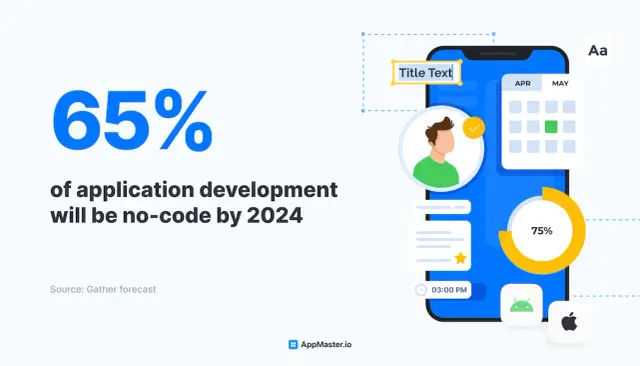Web Development: Freelance vs. Agency vs. In-House
Discover the benefits and drawbacks of freelance, agency, and in-house web development approaches to help you identify the best fit for your business in building web and mobile applications.

The decision on how to build your web or mobile application can significantly impact the project's timeline, cost, and overall success. When it comes to web development, three popular options are available: freelance web developers, web development agencies, and in-house web developers. In this article, we'll take a closer look at each of these options, focusing on the pros and cons of freelance web development in the first part. By understanding the differences between these approaches, you will be better equipped to make the right choice for your business.
Freelance Web Development
Freelance web developers are self-employed individuals who offer their services as independent contractors. They typically work on a project-by-project basis and could be working with multiple clients at the same time, depending on their capacity. Freelancers come with varying levels of experience and expertise, from entry-level developers to seasoned professionals. Choosing to work with a freelancer can offer flexibility and cost-effectiveness, but it comes with its own set of challenges, as we will discuss below.
Pros of Freelance Web Development
Here are some advantages of working with a freelance web developer to build your web or mobile application:
- Cost effectiveness: As compared to agencies or in-house developers, freelancers tend to have lower rates due to lower overhead costs. This can be particularly beneficial for small businesses or startups operating on a tight budget.
- Flexibility: When working with freelancers, you have the opportunity to handpick the developer that best suits your needs and requirements for a particular project. Since freelancers usually work on a per-project basis, you can scale your team up or down as needed without the commitment of hiring full-time employees.
- Access to specialized skills: Hiring a freelancer with specific expertise enables you to get the exact skill set needed for your project, whereas in-house developers or agencies might not possess the same level of specialization in a particular area.
- Short-term arrangements: Freelancers are ideal for shorter projects or to fill temporary needs in your web development process. This allows you to avoid long-term commitments associated with hiring full-time employees or signing contracts with agencies.
- Reduced management overhead: Since freelancers are responsible for managing their own time and workload, you won't need to invest resources in employee training, performance management, and other staff-related tasks. However, this also means that you may have more hands-on involvement in project management to ensure timely and effective delivery.

While freelance web development offers numerous benefits, it is essential to assess not only the advantages but also the challenges associated with working with independent contractors.
Cons of Freelance Web Development
While freelance web development offers numerous benefits, it also presents some challenges that must be considered. Here are some common drawbacks you may encounter when working with freelancers:
- Communication: As freelancers tend to work independently, there might be less direct communication between you and the developer. This could potentially lead to misunderstandings, misinterpretations of project requirements, or slower response times.
- Availability: Freelancers might have multiple clients, making it difficult to dedicate the necessary time and focus to your project. This could lead to delays in delivery or slower progress overall.
- Project Management: When working with freelancers, you might need to invest more time and resources into managing the project, as they might not have the support of a team or customer relations department to rely on.
- Expertise: It can be challenging to gauge the level of expertise or experience a freelancer might have, which could result in substandard work or code quality. You might need to perform more extensive vetting or request a portfolio to ensure that they have the skills required for your project.
- Scalability: Freelance developers might struggle to scale up quickly when your project or business grows, as they don't have the same access to resources as agencies or in-house teams.
- Long-term Maintenance: Continuing service or project maintenance might not be guaranteed, as freelancers might become unavailable or move on to other projects. This could leave your project vulnerable in the long run.
It's crucial to evaluate these cons and weigh them against the pros of freelance web development when choosing the best fit for your project.
Agency Web Development
Agency web development refers to the process of hiring a company specialized in web development services to create and maintain your web and mobile applications. These companies often have a team of experts on staff, allowing them to offer a wide range of web development services, including design, programming, quality assurance, and project management. Let's explore the advantages and drawbacks of engaging an agency for your web development needs.
Pros of Agency Web Development
Opting for an agency when it comes to web development can provide numerous advantages:
- Expertise: Agencies typically have a team of experienced professionals, offering a wide range of expertise in various web development disciplines. With access to specialized knowledge, they can help you build high-quality, complex projects that align with the latest industry trends and best practices.
- Resources: Web development agencies have the infrastructure, tools, and technology necessary for efficient and professional web development, ensuring a high-quality end product.
- Project Management: Agencies often include dedicated project managers who oversee all aspects of your project, coordinate tasks, and ensure that everything is delivered on time and budget. This can significantly reduce the burden on your team.
- Continuity: Working with a web development agency generally provides a sense of reliability and stability, ensuring that your project will be maintained and supported in the long term.
- Scalability: Should your project or business grow quickly, agencies often have the resources and capabilities to adapt and expand their services to meet your needs.
- Quality Assurance: Agencies often have quality assurance (QA) teams in place to conduct extensive testing, ensuring that your web application is bug-free and performs well across various devices and platforms.
Considering these benefits, an agency could be a suitable choice for businesses looking for comprehensive web development services and long-term support. However, it's crucial to consider the potential drawbacks of this approach as well.
Cons of Agency Web Development
While agency web development has its advantages, there are some potential downsides to consider when deciding whether to work with a web development agency:
- Higher Cost: Agencies generally charge higher rates compared to freelancers due to overhead expenses, larger team sizes, and their reputation. Large or complex projects can become quite expensive when working with an agency, particularly if your budget is limited.
- Slower Response Times: Web development agencies often work with multiple clients simultaneously. They may have established project management and communication processes in place, but the multiple engagements can sometimes lead to slower response times or delays in addressing your specific needs.
- Less Personal Attention: As mentioned before, agencies work with various clients at once. Consequently, they may allocate resources and prioritize tasks based on factors such as client size and revenue potential. Your project could receive less personal attention and support compared to working with a freelancer or an in-house developer.
- Less Flexibility: Agencies typically have predefined processes and methods for managing projects. This standardized approach ensures consistency but may not provide the same level of flexibility that a freelancer offers. If your project requires constant changes or pivots, the structured nature of an agency's workflow might not be the best fit.
- Compatibility with Company Culture: When working with an external agency, there might be a learning curve in aligning the agency's style and processes with your organization's culture and branding guidelines. Unlike an in-house developer that intimately knows your company's values, the agency will need time to adapt to your business environment.
In-House Web Development
In-house web development refers to having a full-time employee or team dedicated to web and mobile application development within your organization. This approach enables close collaboration, as the developers are part of your company's structure and culture. Let's explore the advantages of this approach in detail:
Pros of In-House Web Development
- Better Collaboration: Having an in-house developer or team provides a higher level of collaboration since they are physically present within your organization. This facilitates regular meetings, brainstorming sessions, and iterative feedback, fostering a sense of unity and commitment towards the project's success.
- Deep Understanding of Company Goals and Culture: In-house developers, being part of your organization, will have a better grasp of your company's mission, values, and long-term objectives. This understanding allows them to create applications that are in line with your organization's culture and drive your business forward.
- Ease of Communication: In-house web development teams are more accessible for face-to-face meetings, impromptu discussions, and quick resolution of any issues that arise during the development process. They work in the same time zone and share the same working hours, making it easier to address concerns and provide input as needed.
- Clear Accountability: With an in-house developer or team, the lines of responsibility and performance expectations are clearer. You can establish direct communication channels, set goals and targets, and monitor progress more effectively than when working with external partners.
- Greater Control over Intellectual Property: Developing web applications in-house keeps the entire process within your organization's control. This approach minimizes the risk of intellectual property leaks or unauthorized use, ensuring that your proprietary information and assets remain secure.
- Long-term Maintenance: In-house developers are better equipped to provide ongoing maintenance and support for your applications. They are already familiar with the codebase, functionality, and structure of your application, enabling them to quickly address any technical issues or make updates as needed.
Cons of In-House Web Development
While having an in-house development team brings several advantages, it also presents some challenges. Here are the primary drawbacks of managing web development in-house:
- Higher Costs: In-house developers often command higher salaries than freelancers, especially in competitive industries and markets. In addition to salary, you'll also have to factor in other expenses like benefits, equipment, training, and office space.
- Longer Ramp-up Time: Recruiting, interviewing, and hiring skilled developers can be a time-consuming process. After hiring, you also need to invest in onboarding and training for them to become familiar with your company's practices, projects, and goals.
- Limited Skills and Expertise: Some projects may require specific industry knowledge or development experience, which your in-house developers may not possess. This may lead to a knowledge gap and potentially require external collaboration or investment in additional training.
- Resource Management: With an in-house team, you need to be efficient in managing workloads, assignments, and tracking overall team productivity, which can translate to additional administrative overhead.
- Potential Overhead: An internal development team may require larger office space, technology infrastructure, and other resources, which increase overall company overhead. This burden can limit the organization's ability to allocate resources more efficiently and be agile in the market.
Comparing Costs
Considering the financial implications of hiring freelancers, agencies, or in-house developers is a critical step in determining the right approach for your web development needs. Here's a rough breakdown of the costs to help you evaluate:
- Freelance Developers: They typically charge on an hourly or project basis, resulting in lower short-term costs. However, the rates can vary greatly depending on expertise, location, and project complexity.
- Agency Web Development: Agencies offer a wide range of pricing options, including fixed project fees, hourly rates, or retainer agreements. While agencies often provide more comprehensive solutions, they can be more costly than freelancers, especially when working with large or well-established firms.
- In-House Web Development: With in-house developers, organizations must consider salaries, benefits, equipment costs, and other overhead expenses. While the initial investment is higher, the long-term value can be significant, as these developers become integral parts of the team and contribute to the company's growth.
Choosing the Right Approach
Each web development approach has its advantages and disadvantages, so choosing the right one for your project is essential. Here are some factors to consider while making your decision:
- Budget: Determine the resources available for the project and the level of investment you're willing to make in web development.
- Project Scope: Assess the size of your project, its complexity, and specific requirements to determine if a freelancer, agency, or in-house team can handle the task effectively.
- Expertise Required: Identify the necessary skills and knowledge to execute your project effectively. This includes the technologies, languages, and platforms involved, as well as any industry-specific knowledge.
- Communication and Collaboration: Evaluate your communication preferences and available collaboration tools to ensure seamless interaction between project stakeholders. This is particularly important when working with remote freelancers or agencies with different time zones.
- Long-term Maintenance: Consider the long-term support and maintenance needs of your project. Freelancers and agencies may not always be available for ongoing collaboration, while in-house developers can provide ongoing, dedicated support.
Ultimately, the right combination of factors will differ for each organization and project. By carefully considering the pros and cons of each approach and weighing them against your specific needs, you can make an informed decision that best meets your business objectives.
Alternative: No-Code Platforms
Another option to consider for your web development project is utilizing no-code platforms. These platforms enable users to create web, mobile, and backend applications without writing any code. They can be a viable alternative to freelance, agency, or in-house development approaches if you are looking for a more affordable and accessible solution.
No-code platforms typically feature visual development tools, drag-and-drop components, and extensive automation capabilities. They allow even those without technical backgrounds to create sophisticated applications efficiently. By leveraging these platforms, you can speed up the development process, save on costs, and maintain more control over your project.
One key advantage of no-code platforms is that they allow for rapid prototyping, helping businesses bring their ideas to life and iterate on them quickly. They can also minimize technical debt and avoid the need for ongoing maintenance and support from developers, as the platform usually handles these aspects.
Some of the most popular no-code platforms include AppMaster, Bubble, and Webflow. They each cater to different user needs and offer varying sets of features.

AppMaster: A Compelling No-Code Solution
AppMaster is a powerful no-code platform that specializes in backend, web, and mobile application development. Unlike many other no-code tools, AppMaster allows you to create visually appealing data models, design business logic through visual business process (BP) designer, and generate REST API and WSS endpoints. You can also create UI components using drag-and-drop functionalities and design the business logic of each component using the Web and Mobile BP designer. AppMaster offers various benefits for businesses looking for a no-code solution:
- Speed and efficiency: AppMaster greatly accelerates the application development process, providing a significant cost and time advantage compared to traditional methods.
- Elimination of technical debt: By regenerating applications from scratch whenever requirements are modified, AppMaster ensures there is no accumulation of technical debt.
- Scalability: The platform's applications can easily scale to accommodate enterprise and high-load use cases, thanks to the usage of Go-compiled stateless backend applications.
- Flexibility: AppMaster supports various subscription plans – from free trial accounts to enterprise-level plans for large projects – catering to different user needs and budgets. With over 60,000 users and recognition as a high performer by G2, AppMaster has the potential to be a game-changing solution for web development projects.
Conclusion
Choosing the right approach for web development – whether freelance, agency, in-house, or no-code – depends on your specific needs, expertise, budget, and project requirements. By carefully considering the pros and cons of each option, you can make an informed decision and successfully build your web and mobile applications.
Freelance, agency, and in-house web development all have their advantages and drawbacks. Freelance developers can offer cost and flexibility benefits but may suffer from communication issues and require more hands-on project management. Web development agencies can provide a higher level of expertise and comprehensive services but may have a higher overall cost. In-house developers offer close collaboration and deep understanding of your business but come with additional overhead costs associated with full-time employees.
No-code platforms, like AppMaster, present an appealing alternative, as they streamline the development process, reduce costs, and eliminate technical debt. By considering all the available options and evaluating their suitability for your specific project, you can choose the approach that best meets your organization's needs and achieves your web development goals.
FAQ
Freelance developers are self-employed individuals, agencies are medium to large companies specializing in web development, and in-house developers are full-time employees dedicated to a single organization.
Consider factors like budget, project size, expertise needed, communication, and long-term maintenance when choosing the right approach for your project.
Freelancers tend to have lower rates, agencies have varying costs based on their size and reputation, and in-house developers require a full-time salary, benefits, and other overhead expenses.
AppMaster enables rapid and cost-effective web, mobile, and backend application development without any coding, cutting down on development time, reducing expenses, and eliminating technical debt.
Challenges with freelancers can include communication issues, differing time zones, varying levels of expertise, and the need for more hands-on project management from the client.
In-house developers offer close collaboration, a deep understanding of the company's goals and culture, and ease of communication and coordination with other company departments.
Drawbacks can include higher overall costs, potential for slower response times, and less personal attention to your project if the agency is managing multiple clients simultaneously.
No-code platforms like AppMaster provide intuitive visual development tools, pre-built components, and extensive automation capabilities, allowing even non-technical users to create sophisticated web and mobile applications.





